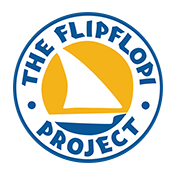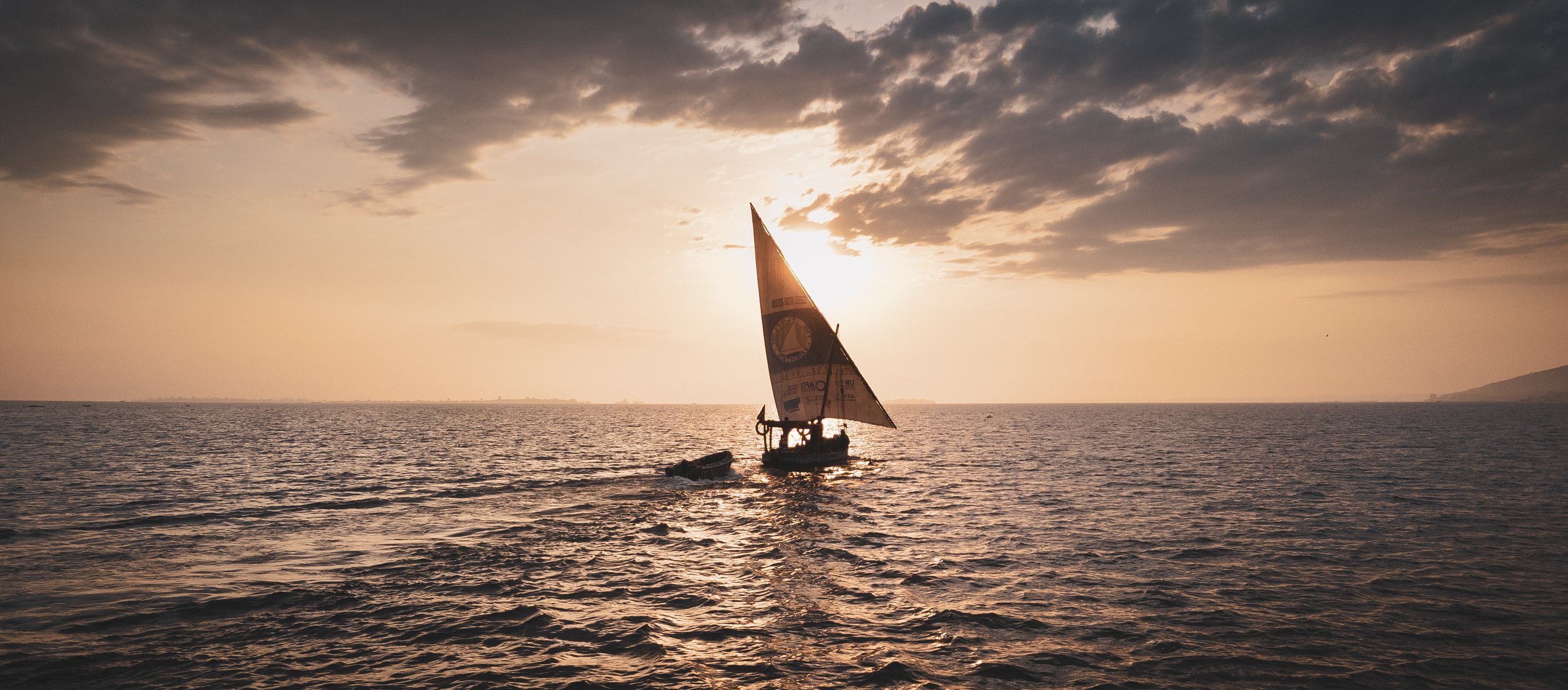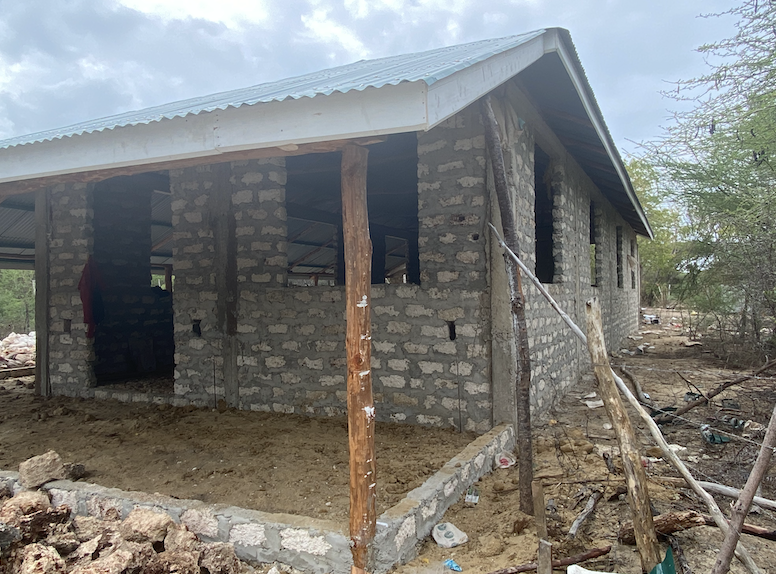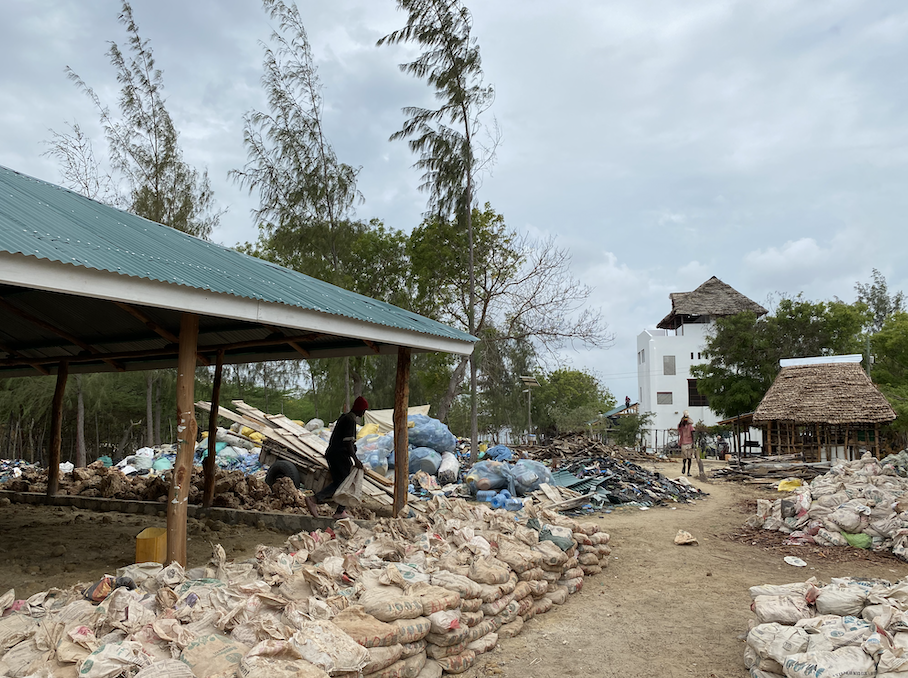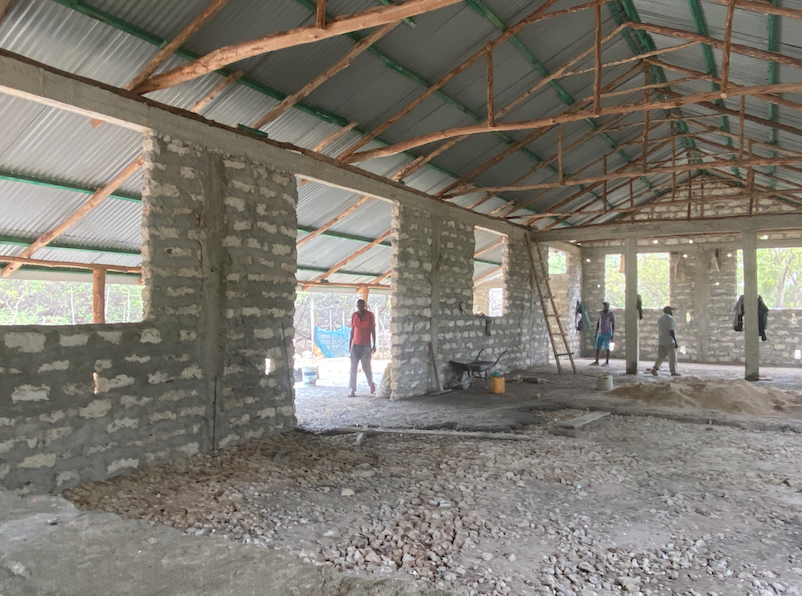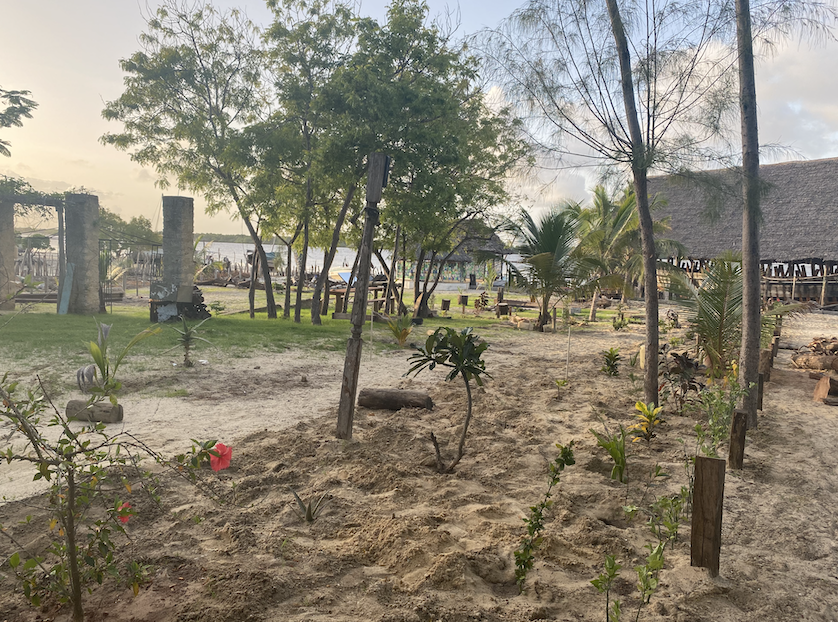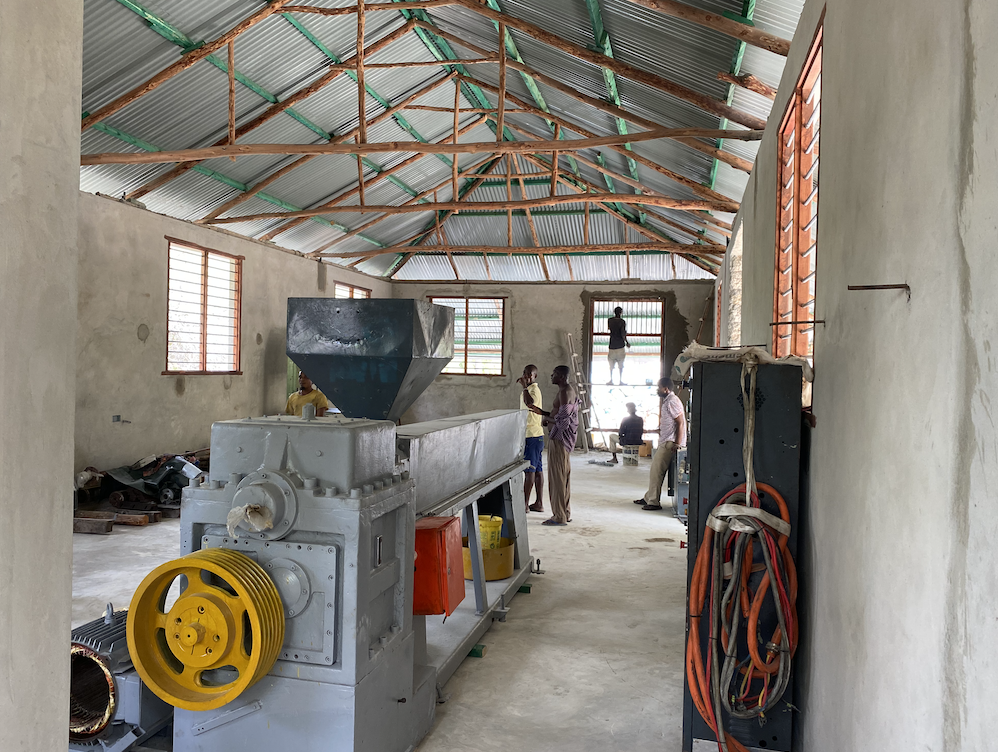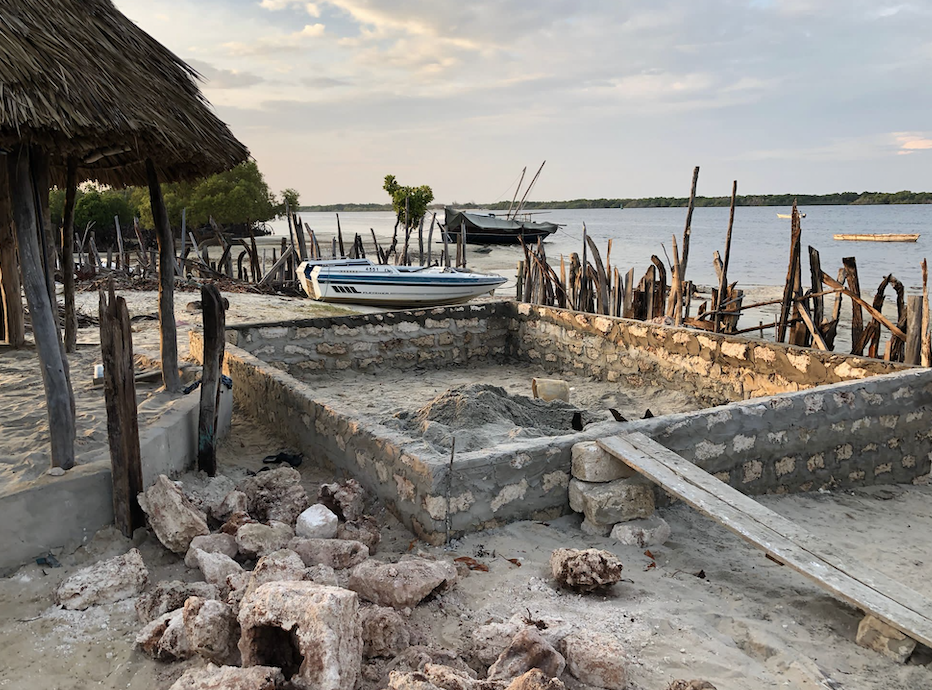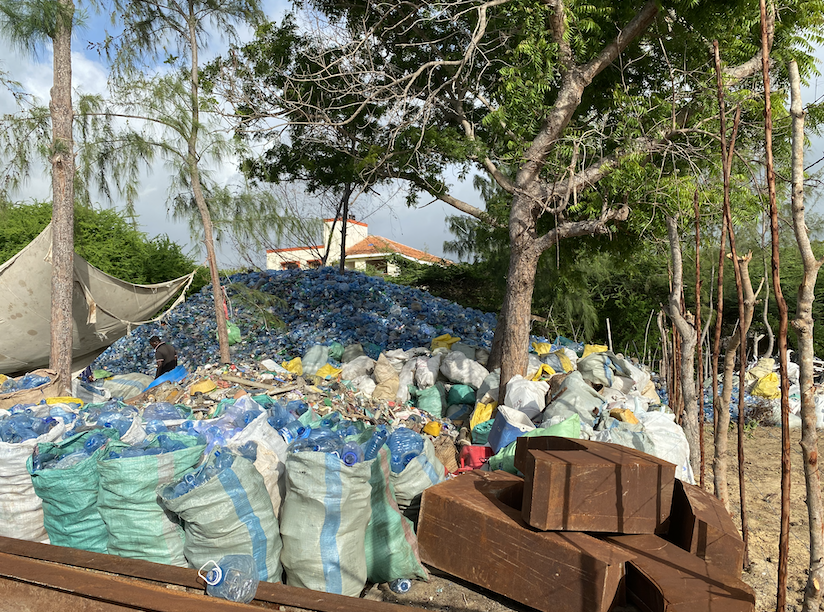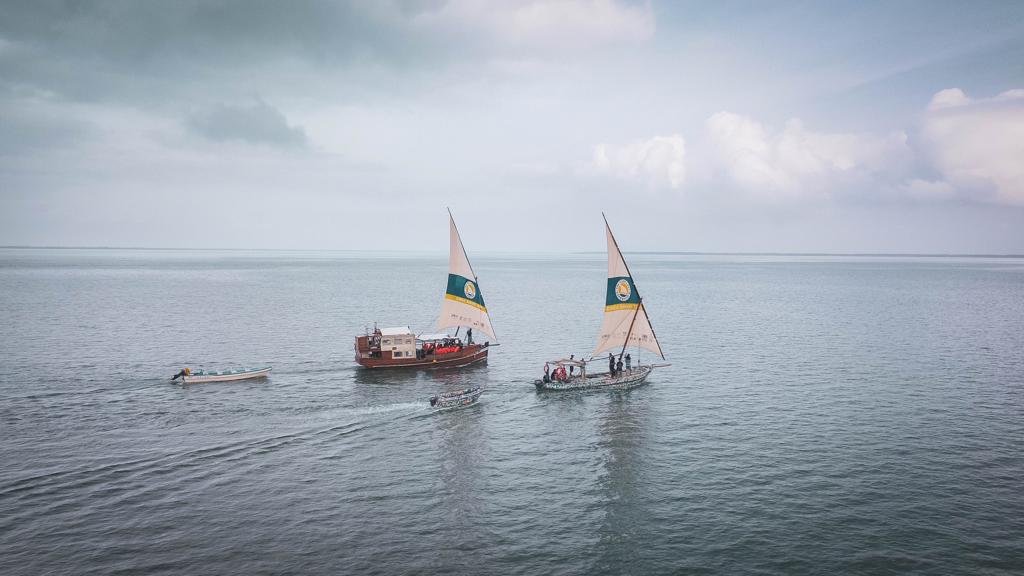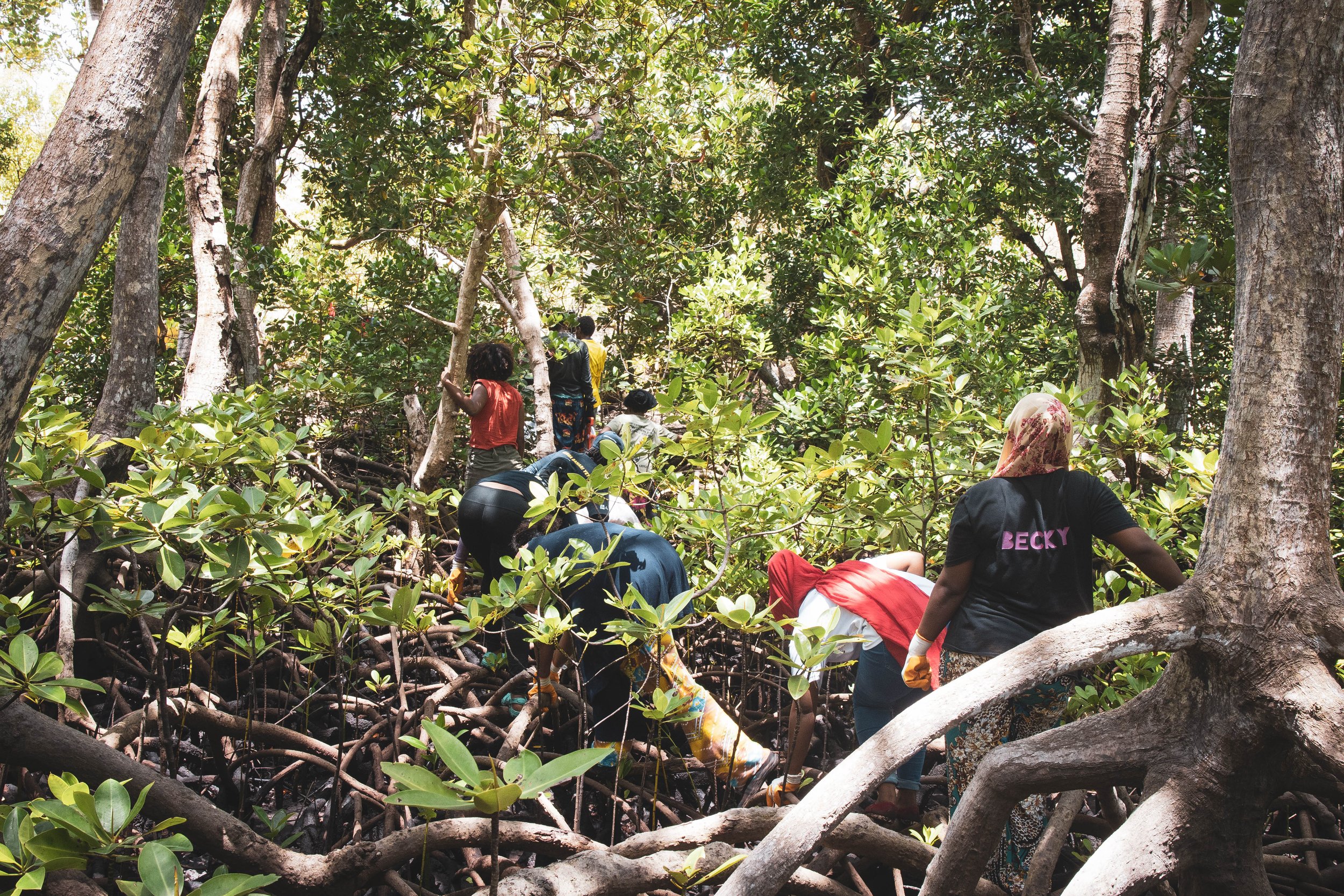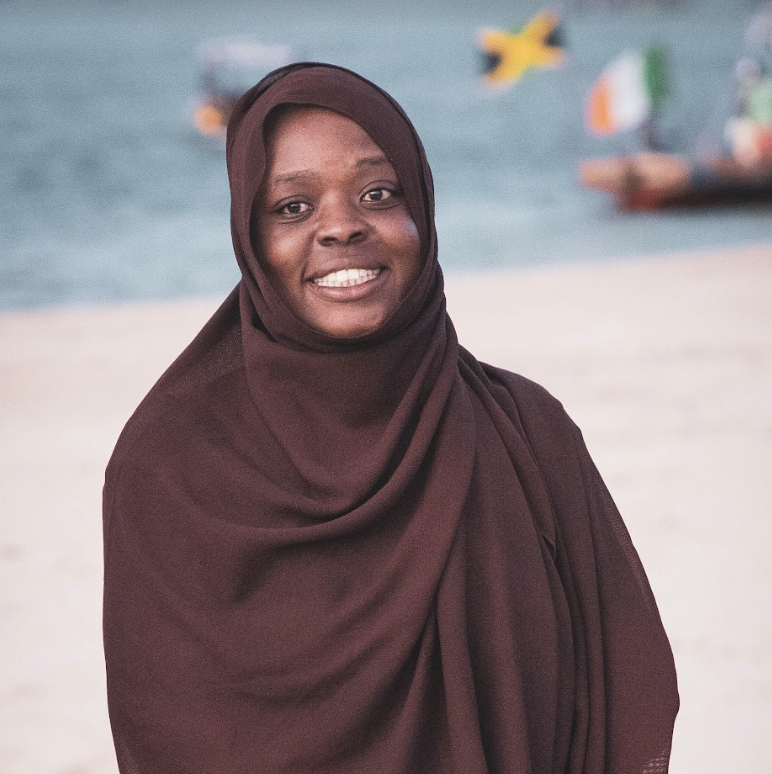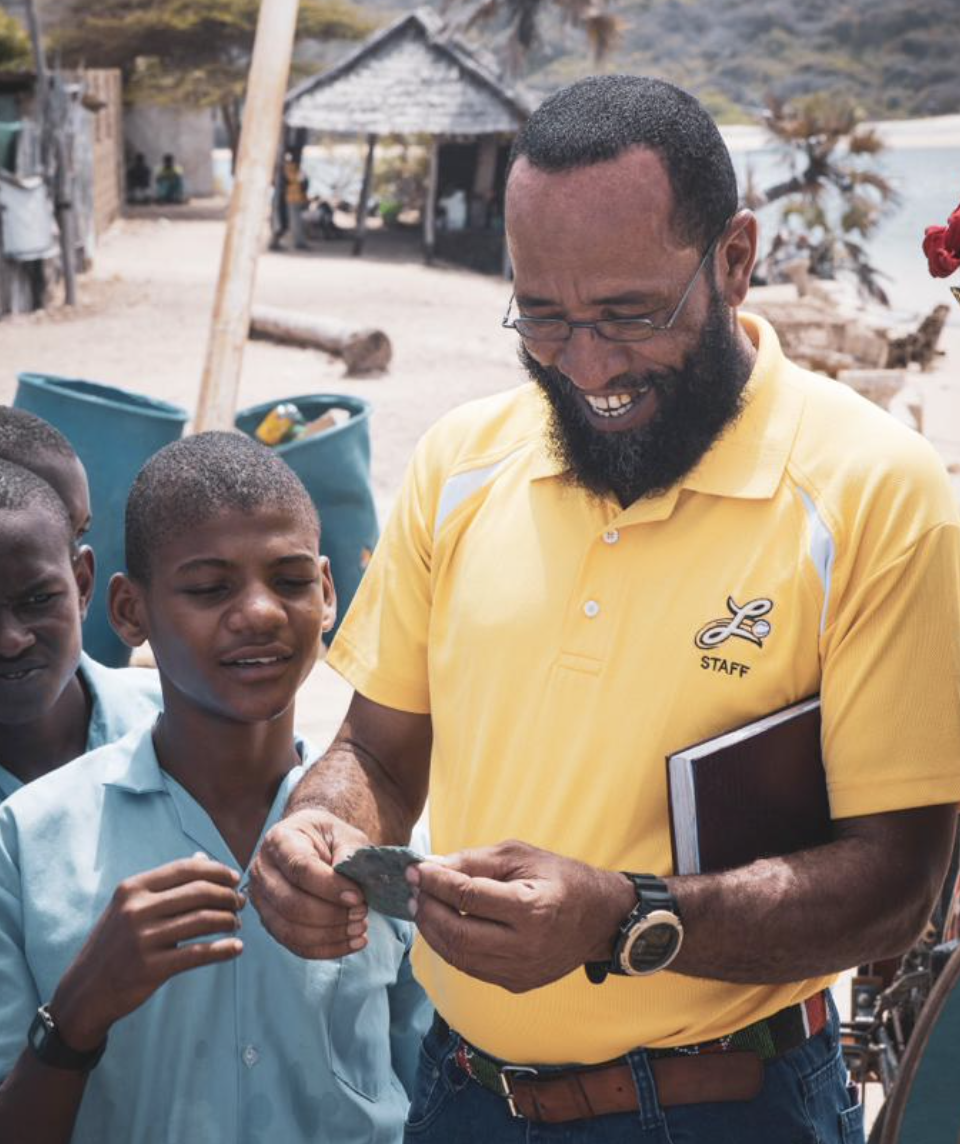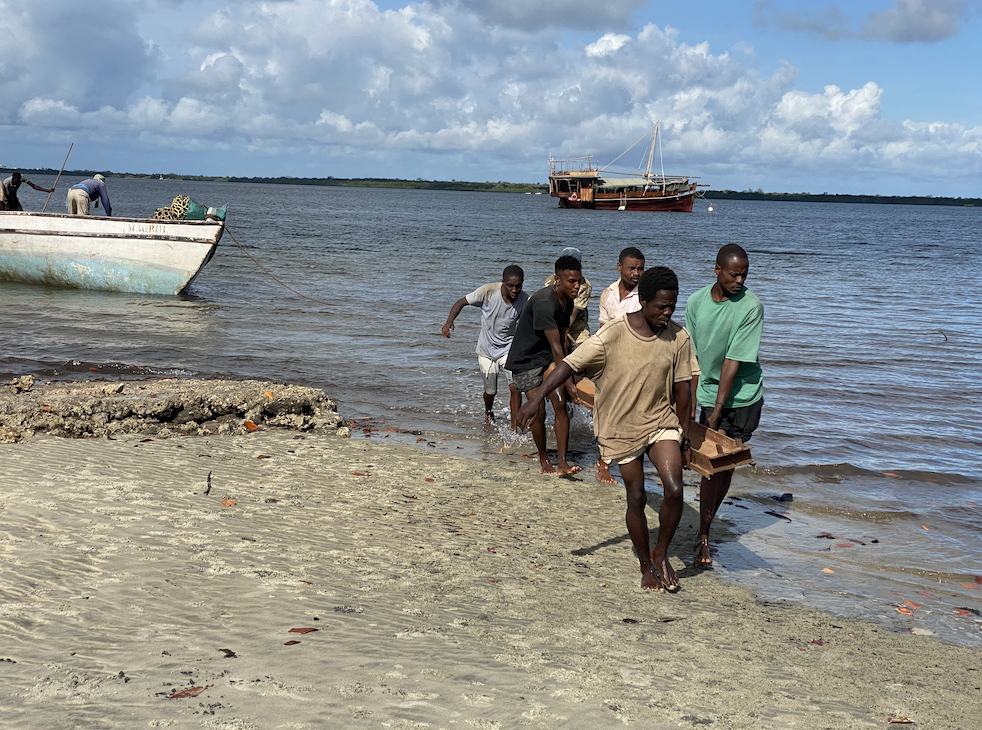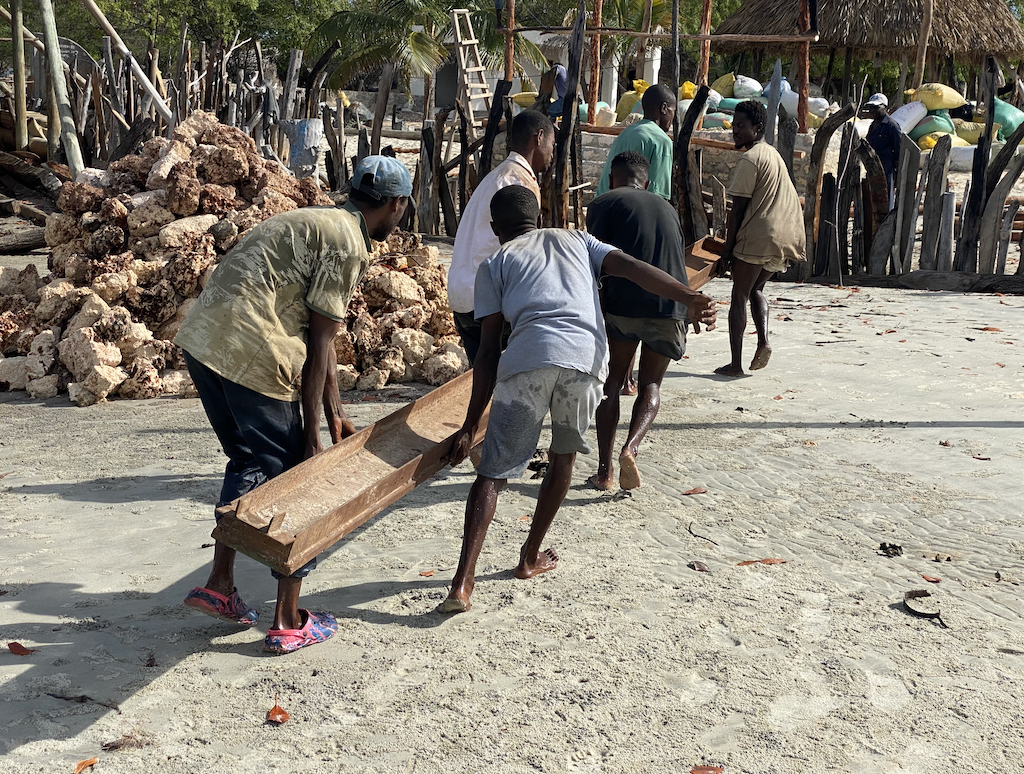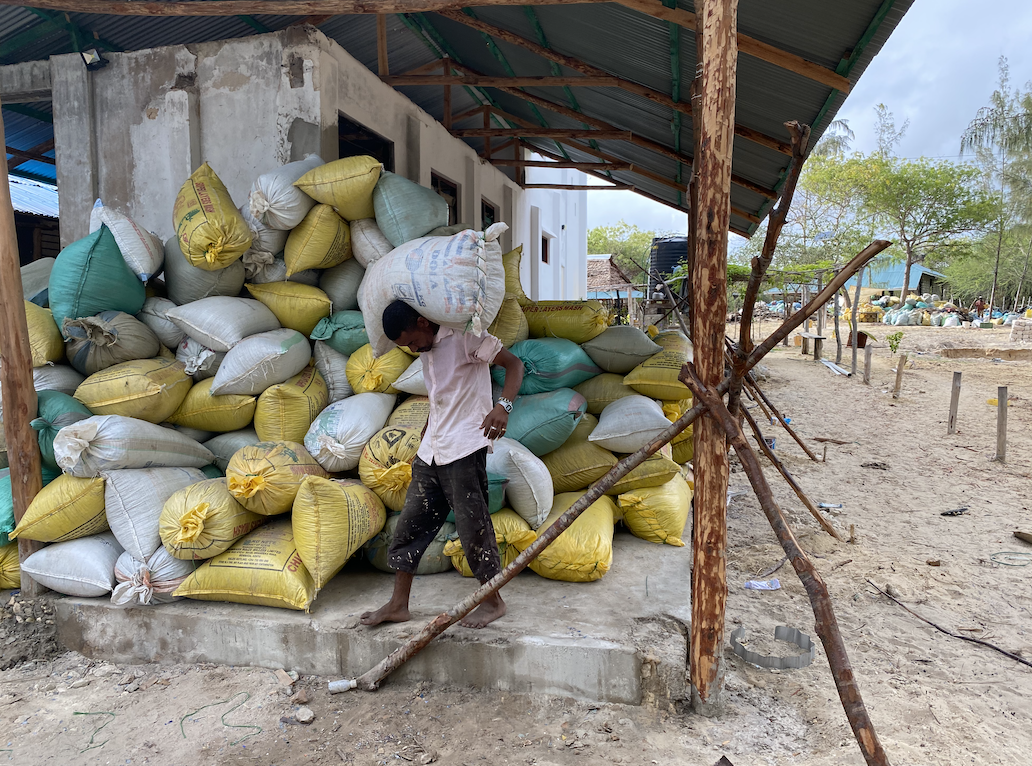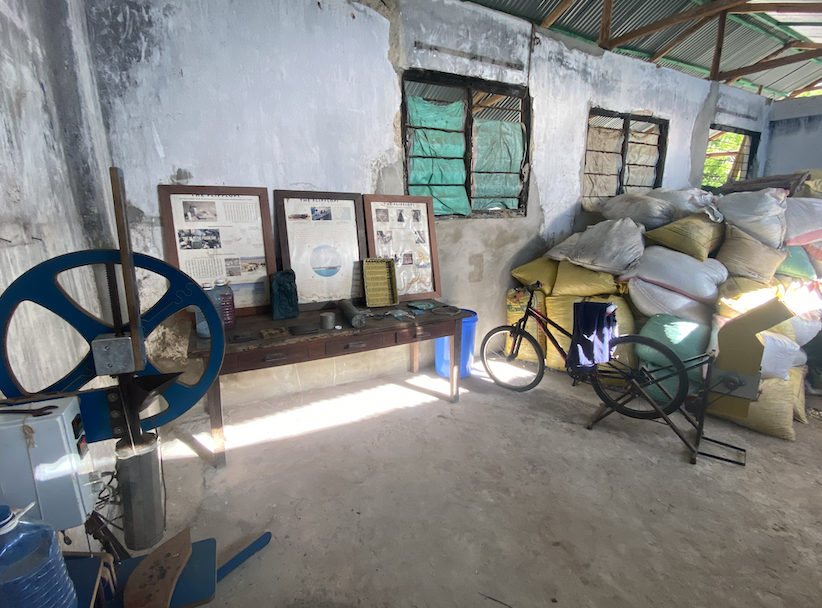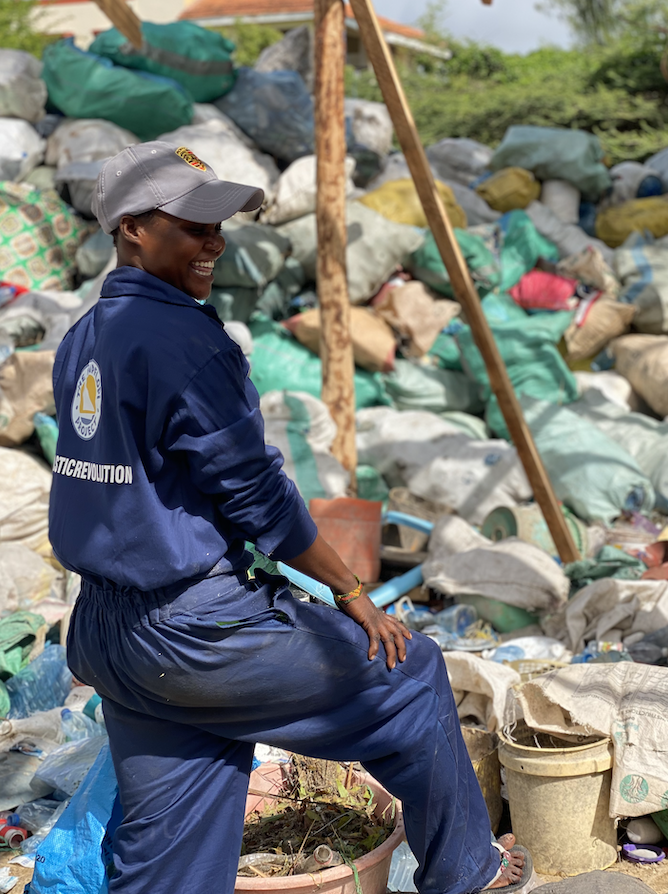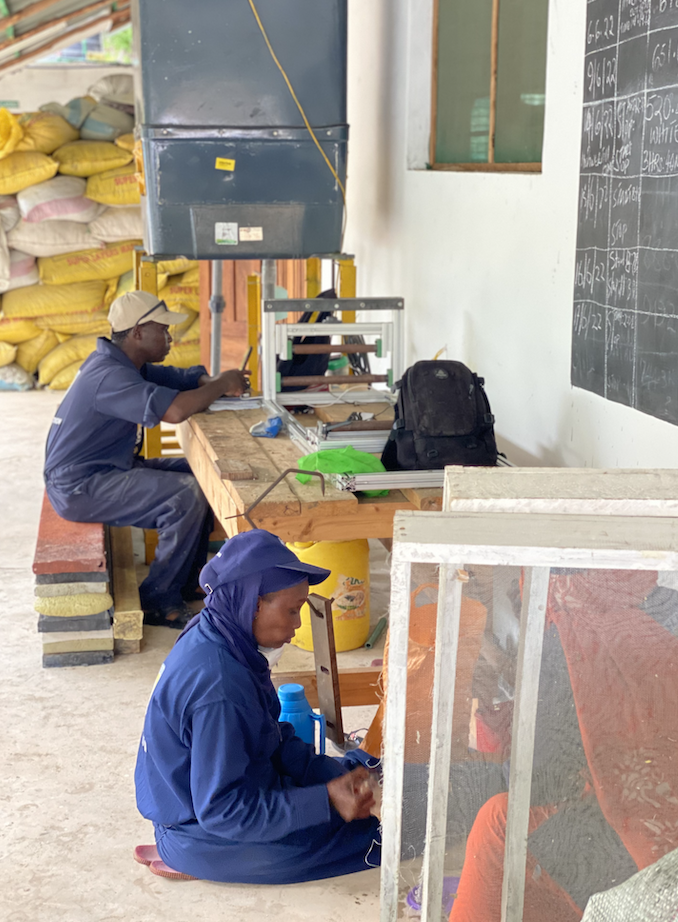An Update from Flipflopi HQ - Creating a plastic recycling and boat building hub in Lamu
Over the past few years, through campaigning and expeditions, we realised the power of The Flipflopi dhow as a way to convene all stakeholders who can turn the tide on plastic.
“Stopping with one boat was never the intention:
We wanted to spread the practice of plastic boat building around the world, and help communities in ocean-dwelling locations like Lamu, Kenya to manage waste and turn it into new products that can bring real value to our community.”
Thanks to our incredible, expanded team and a grant from the UKAID’s Sustainable Manufacturing and Environmental Pollution (SMEP) Program this new mission is now well underway. This month’s blog paints you a picture of all the activities taking place from Lamu Island, Flipflopi’s HQ…
Expanding the practice of plastic boatbuilding and a sustainable recycling hub in Lamu
Leveraging the pioneering techniques developed for the Flipflopi boat, our mission is to expand the practice of plastic boat-building by training more people while retaining the indigenous dhow-building craft knowledge. We also aim to develop new marketable products from recycled plastic waste for use across the community.
This is all part of a wider waste management system where we are collaborating and supporting communities across the archipelago to collect and sort plastic for recycling locally at our facility on Lamu Island.
By creating a value for waste plastics in the region for the first time, we are generating income for communities and preventing plastics from ending up in landfills and in the ocean. All this is being done in a challenging remote location in the Western Indian ocean - if it can be done here, it can truly be done anywhere!
Establishing Proof of Concept: From phase 1 and beyond
You may have followed our ‘phase 1’ activities which were all about setting the foundations for the next 26 months of the project; including a 10 day expedition around the Lamu archipelago in February. Part of the expedition was set out as a baseline study to understand the quantities of plastic and litter present in the archipelago.
We also engaged with various local groups on different islands with a long term view to work with them for the collection of plastics. The findings from ‘Phase 1’ were critical in presenting a compelling case to be awarded funding for ‘Phases 2 &3’. A huge amount of work was needed and it was testament to the diligence from the entire team that meant we proceeded onwards to one of eight projects for the SMEP Program funded by UKAID.
The team took a short pause for breath before we embarked on ‘phase 2’ in May. This is where the real work began, summarized below.
Mapping Distribution and Characterisation of Plastic Litter
Critical to understanding how we can reduce plastic pollution is to establish how much is out there and where it comes from so we are working with our research partners at CORDIO to evaluate plastic hotspots. Dr. Chula and Lynette Apondi are our scientific leads who are in the field visiting different mangroves, beaches and landing sites to investigate marine litter densities and composition, whilst also meeting community members and local organisations to collectively determine the best ways to reduce plastic pollution.
Waste Management and Material Recycling Facility (MRF)
Sadly there is no shortage of waste plastics across the archipelago; however, the logistics of collection and transportation make solid waste management in this area challenging to say the least. Lynette, and Rukia, have been developing connections around the many different community organisations. This now means we have a ‘ready to go’ network of people engaged in collecting plastics from across the Archipelago. Over two days in May we collected over 7 tonnes of recyclable plastic waste from Lamu Town alone and since then we are collecting approximately 15 tonnes a month. We are currently trialling different collection systems to determine what is the most efficient and cost-effective system that maximises benefits to the communities.
At the heart of managing our ‘feedstock’ in the MRF we have our amazing team of sorters led by Damaris (together with Edward, Janet, Rahma, Fatuma, Mariam and Sophia) under the guidance of our experienced Head Engineer Morris. Their role is to receive, weigh and sort the recyclable plastic waste by type and colour then segregate, shred, wash and dry before our product is handed over to the engineering team.
Design and Engineering
Recycling some of these plastics takes serious ingenuity and this is where our engineering team comes in; led by Morris, Isaac, Abu, Ali and Katharina in Lamu supported by Simon in the UK at Northumbria University. They are designing blueprints for new products including traditional canoes and boat taxis as well as refining and improving the manufacturing processes. Recently they’ve built an automated washing system for the shredded plastic, made different moulds for the new products and created processes to enhance our workshop production facility.
Whilst there are certain standard operating procedures for recycling globally, every location has its own set of unique challenges that one has to adapt to in order for the system to be successful and relevant to the local context.
Heritage Boat Building Training Centre
Lamu has a deep maritime history that is kept alive through the magnificent dhows that have changed little in form for hundreds of years and is what gives The Flipflopi its unique identity. Sadly artisanal boat building is rapidly dying across the world as hard wood is now scarce and fibreglass that is unrecyclable is quickly taking the place of traditional boats.
“...we are establishing a Heritage Boat Building School to design and construct recycled plastic sailing vessels with local boat builders based on indigenous heritage, knowledge and skills.”
With Katharina and Ali at the helm, and support from the University of Portsmouth’s Revolution Plastics Program, we are completing our curriculum and preparing our workspace to welcome our first students in a couple of months.
The roots of our business model: indigenous knowledge and local recycled products
With heritage at the very core of what the Flipflopi stands for, we are now exploring the viability of constructing traditional boats and products from recycled plastics for public use.
Our team summarises our operating mission: A significant percentage of the plastics are recyclable, and affordable products can be made for local market if the infrastructure is available and a functioning network of community-based waste management schemes can be centralized and sustained. Sustainability of such a circular economy system will largely depend on community ownership with traditional knowledge systems and cultural heritage central to the design”
Sustainability is key and we have been very fortunate to have Zablon Wekesa who is a Circular Economy specialist, join the team to lead on developing our business model for all our recycled plastic products.
Sadly a large percentage of plastics we are collecting are PET bottles which currently cannot be processed into other products or back to bottles locally. We remain committed however, to finding a sustainable system to collect and recycle PET and work hard to reduce the amount of PET flooding the islands.
Thanks to SMEP
Our material recovery and recycling centre is now up and running, in what is set to transform the way this archipelago manages their waste. And our dream to set up a heritage boat building training centre from Flipflopi’s home in Lamu - to expand the practice of plastic boat building around the world - is now set to become a reality.
A special thanks to all our SMEP partners including NEMA, Lamu County Government, National Museums of Kenya, KWS, KMA, KMFRI, University of Dar es Salaam, CORDIO, University of Portsmouth, University of Northumbria and Watamu Marine Association, South South North and of course none of this would be possible without financial support from UKAID.
